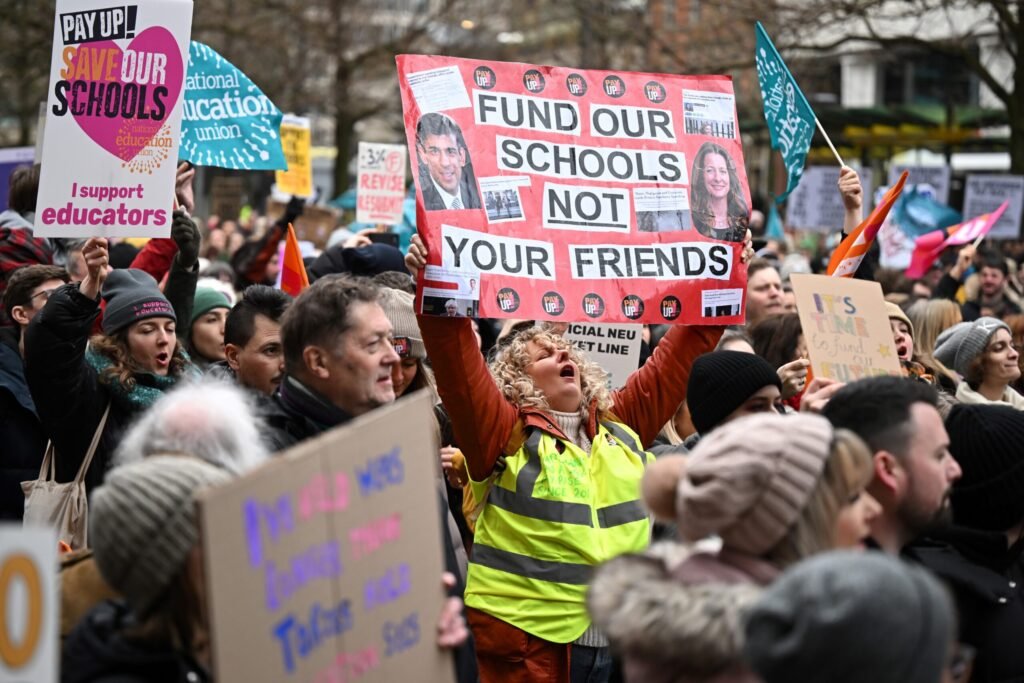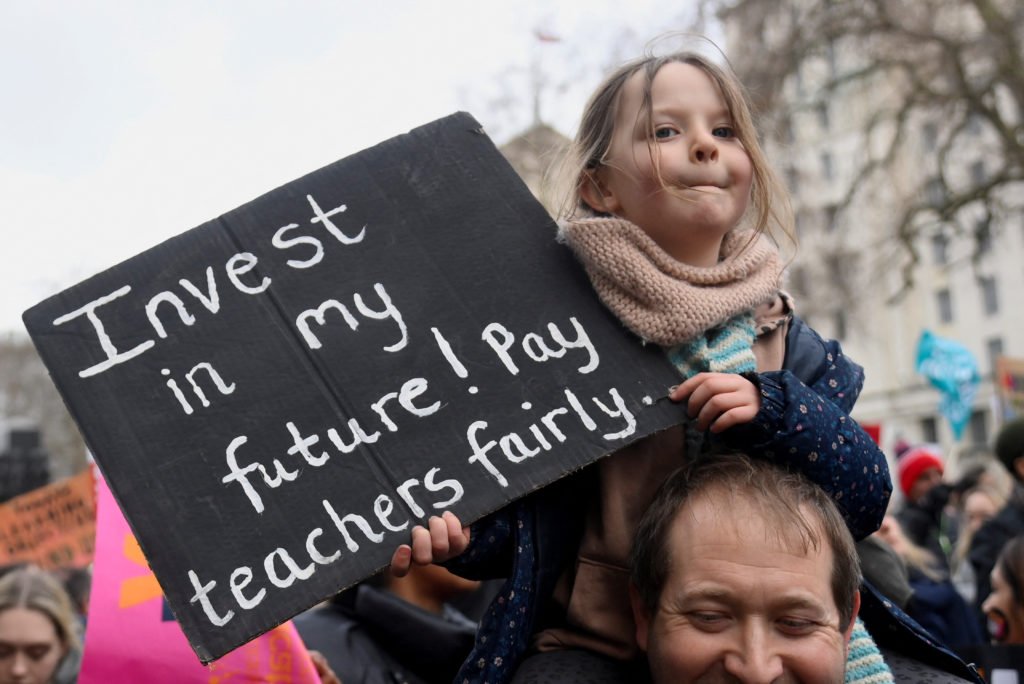A European nation the UK is facing economic turmoil as over half a million workers, including teachers, government employees, and train drivers, go on strike over salary concerns. The nationwide action is the largest in a decade and has resulted in widespread disruptions including closed schools, reduced rail services, and military involvement in border inspections. The government, led by Prime Minister Rishi Sunak, has taken a firm stance against the strikes, claiming they will only worsen the country’s inflation crisis. The international community is urging the government to resolve the issue promptly.

Workers from a variety of industries, including healthcare, transportation, and education, are demanding higher wages, which is the core cause of the disturbance. Since the global financial crisis, Britain’s average salary growth has slowed, and public-sector employees have seen little to no real-term wage growth. The wage gap between the public and private sectors has widened recently; in the three months ending in November, the private sector’s pay increased by 7.1%, while the public sector’s pay increased by only 3.3%.
The U.K. is experiencing its worst inflation in 40 years, which has resulted in a cost of living crisis that has many people turning to food banks. The most severely impacted industries are those in the public sector, including transportation, health care, and education, where workers like paramedics, teachers, and railroad employees are participating in strikes to demand pay increases that keep pace with or exceed inflation and better working conditions.
The unions contend that the stagnant pay of their members over the past ten years has made the effects of the recent high inflation even harsher. After going on strike, some workers in the private sector were able to reach pay deals with their employers, but there are still ongoing disagreements in the public sector. While public officials want a 10% wage increase, the teachers’ union is asking for a government-funded pay award that is higher than inflation.
The British government, acting on the recommendations of independent pay agencies, has requested unions to call off strikes during negotiations and claims that pay hikes that keep pace with inflation will simply make the problem worse by driving up interest rates and mortgage payments. To boost the economy and lower inflation, the administration is also enacting a combination of tax increases and spending reductions. However, the strikes continue as workers call for pay increases that exceed inflation and better working conditions, particularly in public sectors like transportation and healthcare.
A government minister has advised against engaging in outdoor activities as a result of the extensive delays, including train strikes, which have harmed the hotel sector and had an impact on commuters. The Centre for Economics and Business Research estimates that over the course of eight months, the strikes resulted in economic losses of 1.7 billion pounds. In-depth contingency preparations have been developed by the administration to lessen the impact of the strikes. According to a government spokeswoman, the greatest mitigation would be for union leaders to cancel the planned strikes, continue discussing, and come to a compromise.







